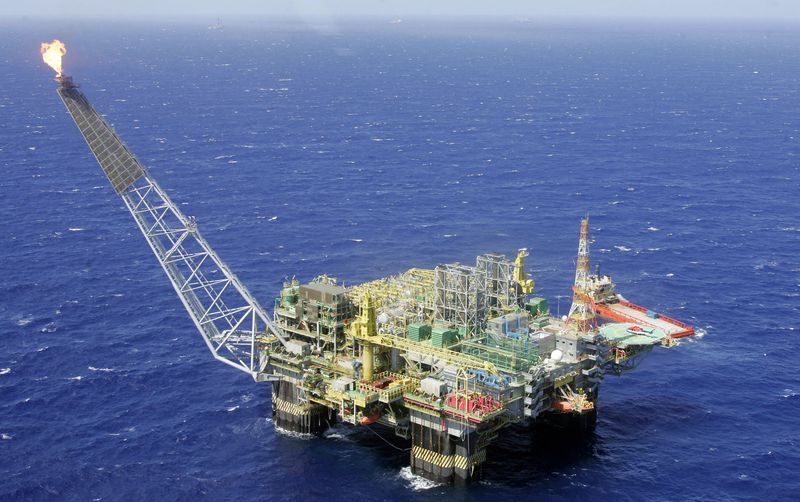
© Reuters
By Gina Lee
Investing.com – Oil was up on Monday morning in Asia, as the conflict in Ukraine escalates. Western countries slapped fresh sanctions on Russia in response to the invasion of Ukraine, and Russian President Vladimir Putin responded by putting his country’s nuclear deterrent on high alert.
Brent oil futures rose 4.79% to $98.63 by 10:46 PM ET (3:46 AM GMT), after climbing above the $100 mark earlier in the session. The April Brent contract expires on Feb. 28. WTI futures jumped 5.11% to $96.27 after hitting a high of $99.10 early in the day and hitting the $100.54 mark during the previous week.
“Moves by the U.S. and Europe to remove certain Russian banks from the SWIFT system have raised fears of a disruption to supply of some sort in the near term,” ANZ commodity strategist Daniel Hynes told Reuters.
“The risk to supply is the greatest we’ve seen for some time and it comes in a tight market,” he added.
Putin ordered Russia’s “deterrence forces”, which wield nuclear weapons, onto high alert on Sunday as Western powers blocked big Russian banks from using the global SWIFT messaging system. This heightened concerns that oil shipments from Russia, one of the world’s largest producers, could be disrupted.
“President Putin’s decision to put Russian nuclear forces on high alert is a clear and worrying escalation that can only be supportive for oil prices,” PVM’s Stephen Brennock told Reuters.
Investors also await the next meeting of the Organization of the Petroleum Exporting Countries (OPEC) and allies (OPEC+), scheduled for Mar. 2. The cartel is expected to leave its plans to add 400,000 barrels per day (bpd) of supply in April 2022 unchanged.
OPEC+ also reportedly revised down its forecast for the oil market surplus for 2022 by about 200,000 bpd to 1.1 million bpd ahead of the meeting.
A technical committee report reviewed by Reuters on Sunday also showed stocks in the developed world falling to 62 million barrels below the 2015 to 2019 average by the end of 2022, further highlighting market tightness.
Meanwhile, a separate report showed OPEC+ produced 972,000 bpd less than their agreed targets in January 2022.
“The market being so tight with OPEC producers really struggling to raise output as well, means any issue with Russian supplies would be felt pretty significantly across the market,” said ANZ’s Hynes.
Source: Investing.com






























